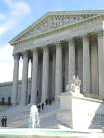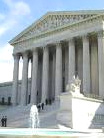| Substandard living conditions found at the Army's flagship veterans hospital likely exist throughout the military health care system, the head of a House panel investigating Walter Reed Army Medical Center said Monday. "We need a sustained focus here, and much more needs to be done," Rep. John Tierney said of a scandal enveloping Walter Reed. Charges of bureaucratic delays and poor treatment there have produced calls in Congress for quick reform. Tierney said he is afraid "these problems go well beyond the walls of Walter Reed," adding that "as we send more and more troops into Iraq and Afghanistan, these problems are only going to get worse, not better." The hearing brought an apology from the Army's top civilian. "We have let some soldiers down," said Peter Geren, undersecretary of the Army. As Congress held its first hearing on the scandal at the medical center itself, Tierney, D-Mass., questioned whether problems at the facility are "just another horrific consequence" of inadequate planning that went into war in Iraq; a problem created by contracting out work there to private business, or some other cause. "This is absolutely the wrong way to treat our troops, and serious reforms need to happen... immediately," he said. Tierney chairs the House Oversight and Government Reform Committee's national security panel, which held the hearing Monday in the hospital's auditorium. The list of Army officials, hospital staff and patients invited to speak includes the medical center's previous commander, Maj. Gen. George Weightman. Geren, who will become acting Army secretary later this week, told the panel that the revelations of poor conditions at Walter Reed had hurt the Army. Defense Secretary Robert Gates forced Army Secretary Francis Harvey to resign last Friday. "There's a vow that's part of the soldier's creed: I will never leave a fallen comrade," he said. "That's the -- on the battlefield, in a hospital, as an outpatient. That is the part of our soul of every soldier. And anytime that vow is broken, I can tell you it hurts the heart of the Army," Geren said. The defense subcommittee of the House Appropriations Committee also scheduled a hearing on Walter Reed for later in the day. Outraged lawmakers on Sunday vowed quick action and called for an independent commission to examine poor conditions for soldiers wounded in Iraq and Afghanistan. In a letter Sunday to Defense Secretary Robert Gates, Sen. Charles Schumer, D-N.Y., asked for an independent commission, possibly headed by former Secretary of State Colin Powell, to investigate all post-combat medical facilities and recommend changes. "To think that men and women are serving their country in the most honorable and courageous way possible and all we give them is a dilapidated, rat-infested, run-down building to recover is a disgrace," Schumer wrote. "My fear is that Walter Reed is just the tip of the iceberg, and merely highlights the pervasive and systemic mistreatment of our service members." President Bush last week ordered a comprehensive review of conditions at the nation's network of military and veteran hospitals. They have been overwhelmed by injured troops from the wars in Iraq and Afghanistan. The White House said the president would name a bipartisan commission to assess whether the problems at Walter Reed exist at other facilities. Last week, Gates created an outside panel to review the situation at Walter Reed and the other major military hospital in the Washington area, the National Naval Medical Center at Bethesda, Md. Gates also dismissed Harvey, who had fired Weightman and replaced him with Lt. Gen. Kevin Kiley, the Army's surgeon general and a former commander of Walter Reed. Gates said Harvey's response was not aggressive enough. The Army announced that Maj. Gen. Eric B. Schoomaker will be the new commander of Walter Reed, which is in Washington. In addition, the Army took disciplinary action against several lower-level soldiers at Walter Reed. The moves came in response to a series of Washington Post reports about substandard conditions and bureaucratic problems affecting the care of injured soldiers returning from Iraq and Afghanistan to Walter Reed, one of the military's highest-profile and busiest medical facilities, and its outpatient facilities. Sen. Carl Levin, D-Mich., chairman of the Senate Armed Services Committee, said Sunday the scandal is emblematic of the Bush administration's "lack of accountability" and "overoptimism" about the war in Iraq. |







